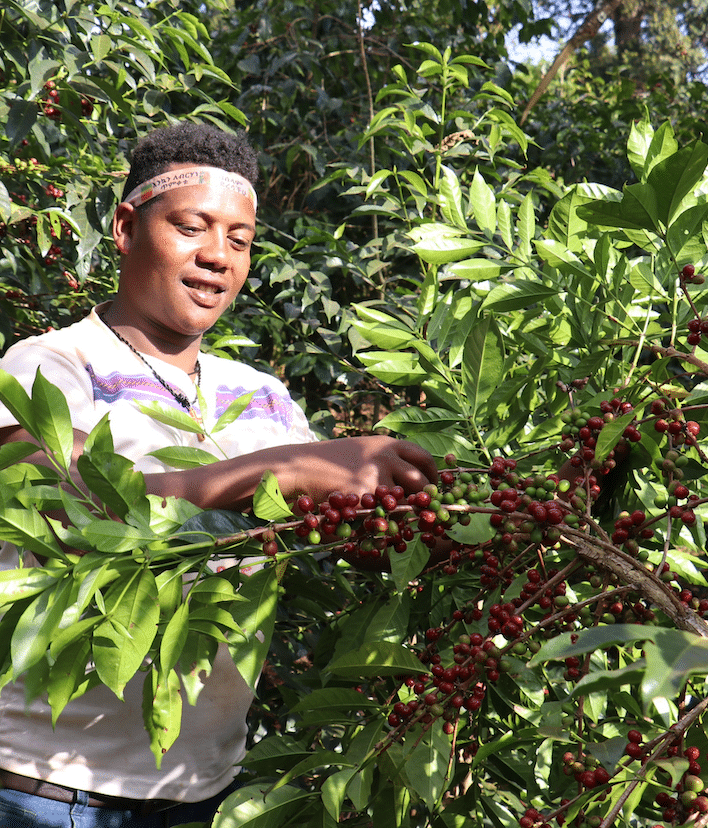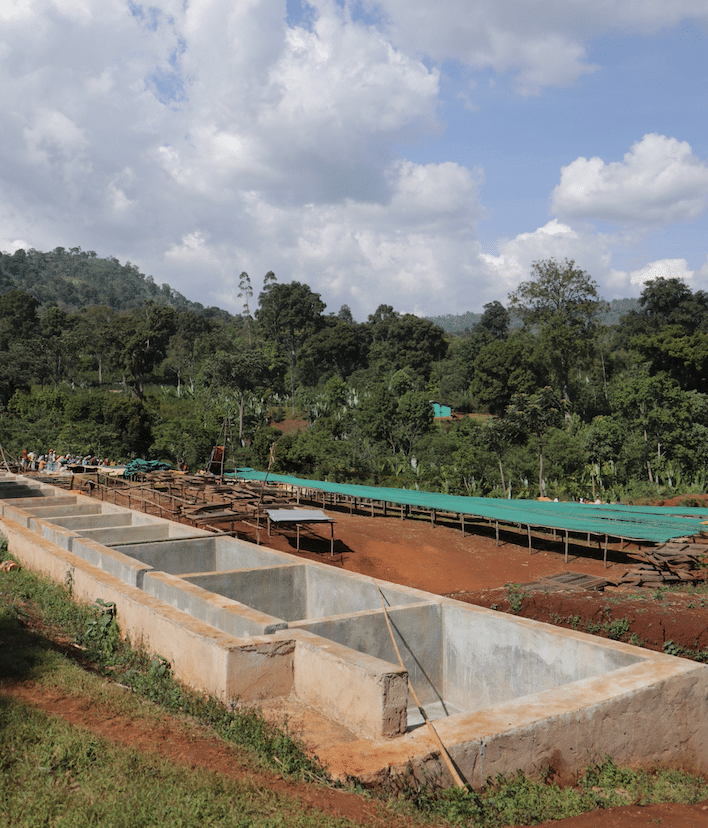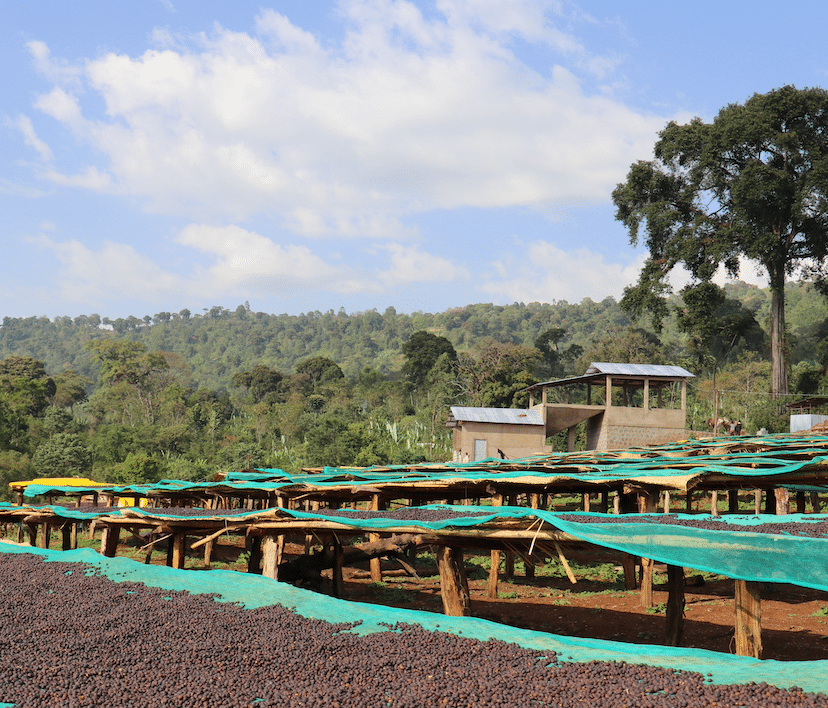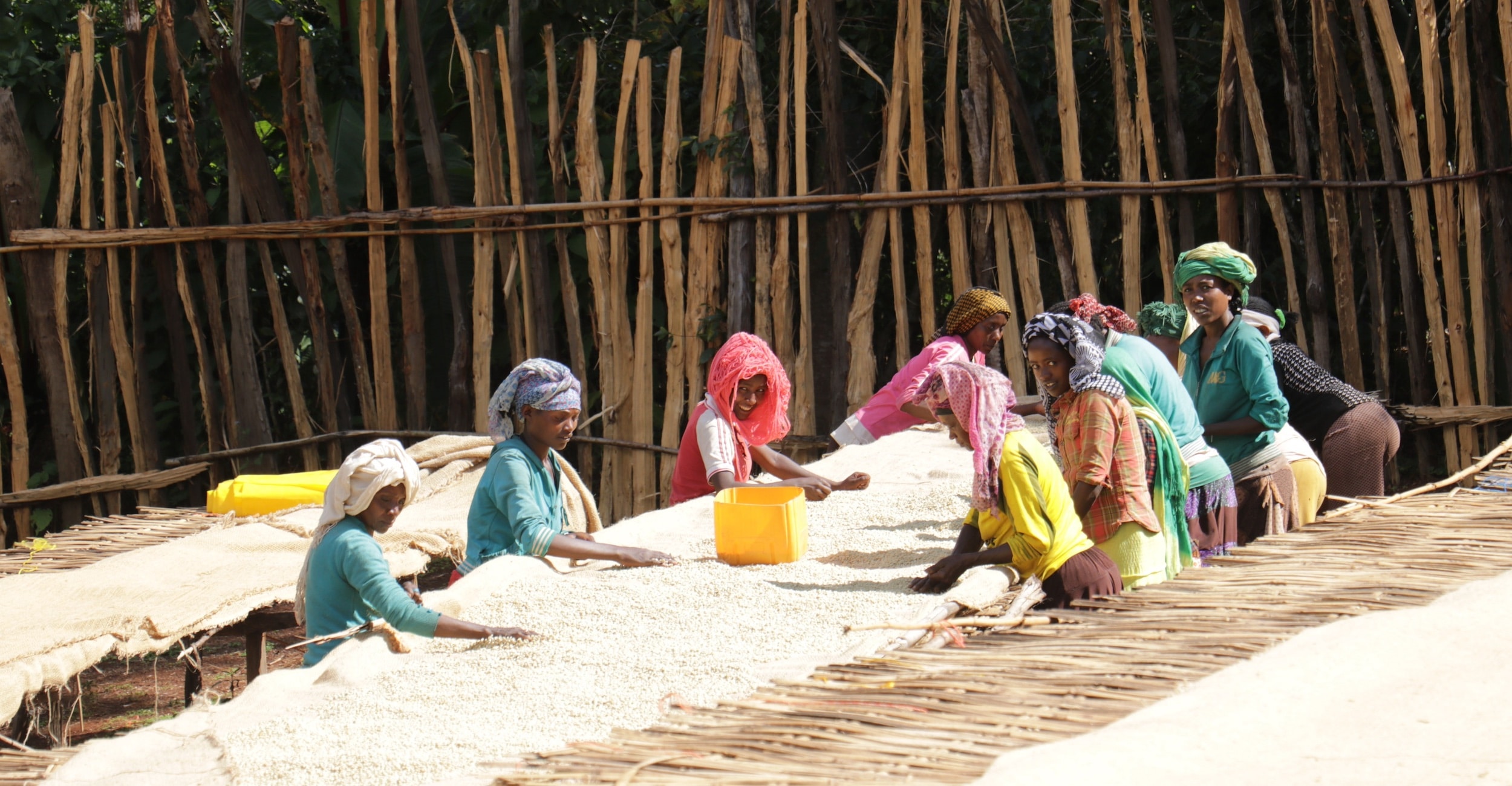05.20.22
We often get rave reviews on our Ethiopian coffees. We want to take a minute to chat more in-depth about Ethiopia’s coffee industry and bring you in on a few industry secrets. Because it’s not just you: Yes, Ethiopian coffee is unique and wonderful. But it can also be unexpected and unfamiliar.
So, what exactly is going on?
Redefining Coffee
First, we’d like to invite you to challenge your preconceived notions of coffee. While we do have customers who want nothing but Ethiopian coffee, we also get some pushback. More than once we’ve heard: “I just want a coffee that tastes like coffee.”
Our answer to that? We don’t think that word means what you think it means.
Ethiopia is the historical home of Arabica coffee — some say the word “coffee” is derived from Ethiopia’s Kaffa Zone.
However, when we release Bobbassa, an annual customer favorite from the Shakkiso region of Ethiopia, people are surprised. It doesn’t taste like many expect “coffee” to taste. Yet it could be seen as one of the closest modern instances of coffee distilled down to its origin.
Here in the West, we need to broaden our concept of coffee to appreciate all that Ethiopian coffee is, has been, and will be — and many of you already have! Read on to learn about the ways Ethiopian coffee diverges from the rest of the coffee industry.

Picking ripe coffee cherries off the tree.

The Worka Chelbessa washing station in Ethiopia utilizes the traditional underwater fermentation.
The Singularity of Ethiopian Coffee
While every country brings something a little bit different to its coffee, the intricacies can be minute, and there are a lot of commonalities. Ethiopia’s coffee, however, tends to be unique in a way that is miles different from its counterparts grown in other countries. It has a unique flavor diversity that just doesn’t exist when you plant coffee elsewhere in the world.
One great example of this phenomenon is the Gedeb region. Our latest Ethiopian coffee release, Danche, came from Gedeb. Despite being just a few hundred miles from the historical origin point of Arabica coffee, Gedeb only began to see regular specialty coffee cultivation about 30 years ago. In specialty coffee industry terms, that makes Gedeb’s industry relatively young — yet the quality and uniqueness that comes out of the area is astounding. And nobody knows exactly why.
The Cultivation of Ethiopian Coffee
Ethiopian coffee’s singularity might have something to do with the climate or the soil, and it almost certainly has something to do with a lack of industrial cultivation of the land. The farmers we source from in Ethiopia aren’t clearing the land and monocropping.
Instead, they’re trying to re-establish forest and biodiversity. That runs in contrast to much of the industrialized coffee production among other global leaders in output, such as Brazil and Colombia.

Learning from Ethiopian Coffee
Collectively, we humans are about 300 years deep in the coffee industry. Colonization is what drove coffee cultivation in many countries, and things continue to become more structured and streamlined. But Ethiopia was largely able to evade the traditional colonial industrialization that most other coffee-producing countries experienced. In fact, Ethiopian coffee farmers still haven’t fully subscribed to Western ideas of creating great coffee.
There’s a tendency in the coffee industry to marvel at these “simple” farming methods and try to apply the methods and “expertise” we’ve learned elsewhere to the relatively young industry in Ethiopia. Of course, that’s an unhelpfully simplified take. And it sets us up to follow the trajectory of coffee’s problematic past.
Alternately, let’s recognize that the coffee industry in Ethiopia is different than what we’re used to in other parts of the world — and acknowledge that it’s creating something spectacular. Let’s learn from Ethiopia and support the industry there as it grows and expands in a way that celebrates their globally unique coffee and the people creating it.

